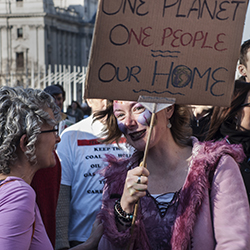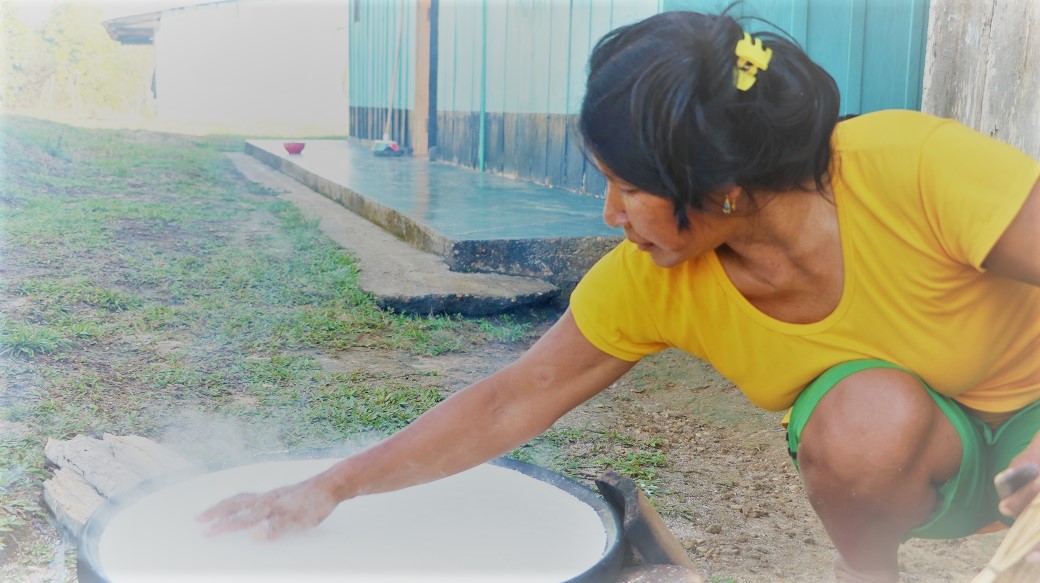The dirty deal that is on the table – an update from Paris

Simon Fischer*
Last week, the 21st Conference of the Parties (COP) started with a big ballyhoo by the world leaders from all over the planet calling for action against climate change. Another time, people from all over the world put their hopes on political leaders paving the way for a truly sustainable future. After a week of open and a large number of closed meetings of delegates under the working groups, the latest draft document, containing many passages in brackets, was handed over to the French chairman of the COP. Although, a binding agreement seems is still on the table and some positive signs seem to be there, this deal would probably come along with devastating side effects.
Some progress has been made in the draft agreement on issues like reducing the targeted maximum increase of global average temperature from 2 to 1.5 degrees or the removal of the term net-zero in one article (while it has been included at many other parts). However, on the second look it becomes obvious that these progress will leave to devastating backlashes on other issues. The 1.5 degree limit has been accepted by the majority of the of the 195 countries attending the COP but is still challenged by key countries, such as Saudi Arabia and its allies. Whether the 1.5 or even 2 degree goal is realistic is another question. Looking at the voluntary emission reduction targets handed in by the countries via their Intended Nationally Determined Contributions (INDCs), the sum of the overall emissions would lead to an disastrous increase of at least 3 degrees. In addition, most of the INDCs as well the draft agreement undermine or totally ignore the existing agreements such as SDG 15.2 – zero deforestation until 2020 – completely. As an Indonesian Delegate highlighted at a side event of the Global Environment Facility (GEF) in Paris “zero deforestation is nonsense”.
Moreover, if the 1.5 degree target will be passed it might happen at the expense of the most vulnerable ones in terms of financial and compensation matters. The U.S. seems aiming to kill a mechanism which should compensate developing countries for loss and damage from climate change effects by specifically excluding it from the agreement. In addition, the common but differentiated responsibilities and respective capabilities (CBDR-RC) seems to be more and more challenged by developed countries trying to avoid providing financial support, technology and knowledge transfer to developing countries and paying their fair share to combat climate change. All this would lead to devastating effects for the most vulnerable, particularly in small island states and other parts of the world highly vulnerable to climate change.
Another issue making the possible Paris Agreement a dirty deal is the fact that certain decisions are cleverly hidden in the text and thus, might be taken without getting much attention by the wider public. This could lead to disastrous consequences, in particular, human rights violation and the offsetting of emissions on a very large scale. Brazil, for instance, is pushing for an extended version of the controversial Clean Development Mechanism (CDM). The past has shown that REDD+ projects financed under the Clean Development Mechanism, for instanced, helped developed countries offsetting their emissions and led to land grabbing, the transformation of forest into monoculture plantations, the displacement of indigenous people and local communities and their restriction on access to water and other pivotal resources particularly essential for women who are among the most vulnerable. The mechanism proposed by Brazil (currently dealt under the name Sustainable Development Mechanism) is in its nature a much more holistic approach due to the very vague definition in the draft. This would mean that all kind of projects in developing and developed countries would be included under it letting countries offsetting their emissions even more. In addition, in the text it is not specifically defined how to deal with land use issues. Especially in this field, the coherence with existing regulations and agreements (e.g. CBD, CFS Voluntary guidelines) human rights are essential and needs to be ensured under any possible agreement.
Sadly, a real deal is far away from being reached while false solutions are revealed more and more. So, our only option is to put all our effort in preventing the worst which means highlighting the flawed solutions which are on the table.
*Simon Fischer is Climate and Land Use Policy Advisor of the Global Forest Coalition (GFC)











